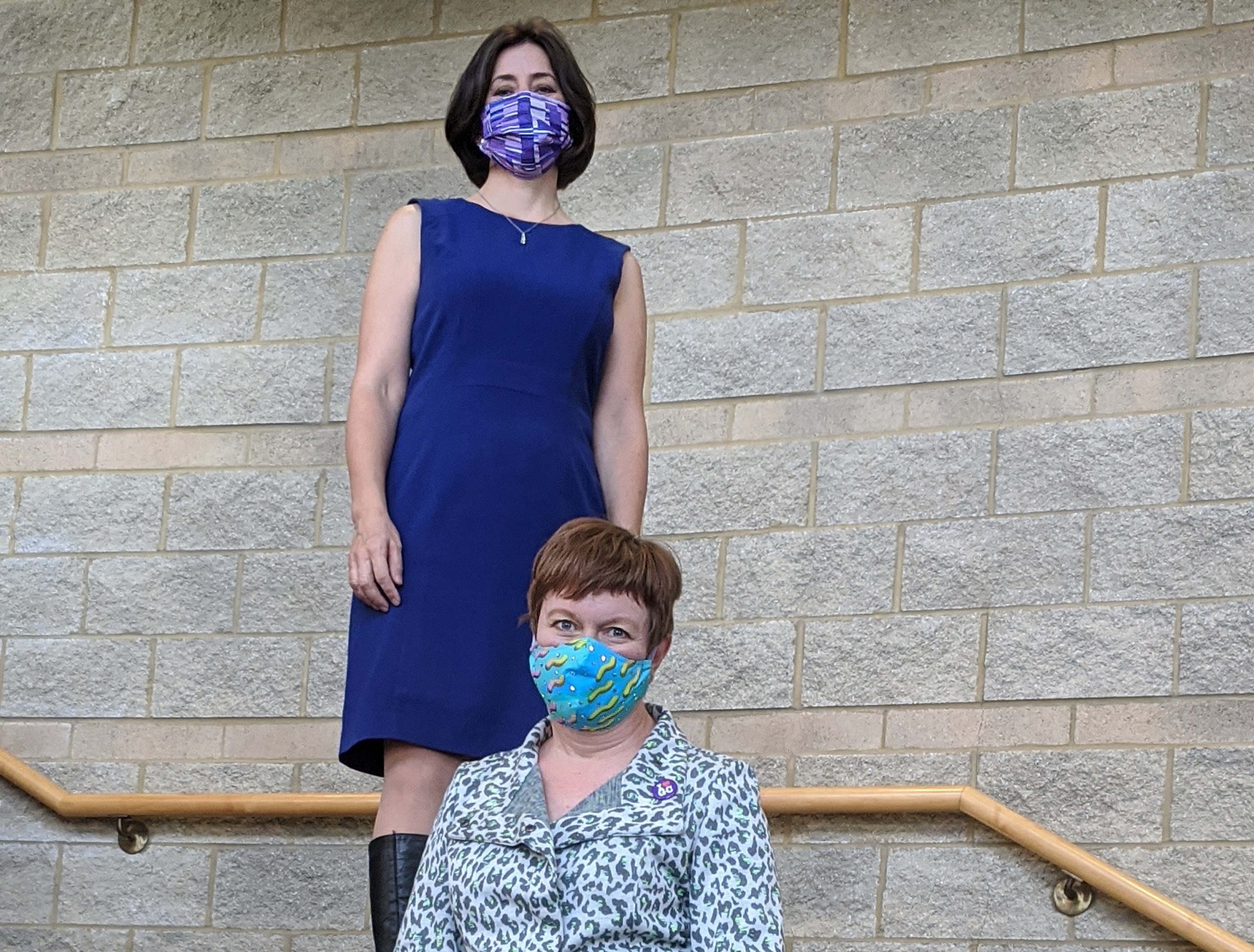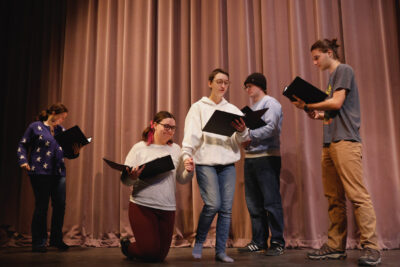Goshen College has welcomed two new faculty members to the performing arts department this year: assistant music professor H. Roz Woll and assistant theater professor Amy Budd.
Woll and Budd are each filling vacancies in their respective departments. In the spring of 2019, longtime faculty member and beloved professor Deb Detwiler passed away after 20 years of teaching at Goshen College. Woll is succeeding her as the new assistant professor of music and Voices of the Earth director. Meanwhile, Budd is taking on her new role following Professor Doug Caskey’s retirement last year.Woll grew up in Chicago, where she sang in the Chicago Children’s Choir for nine years, an experience that she said “significantly shaped my life in all aspects.”
Following her undergraduate education at Indiana University, Woll attended graduate school and received her Master of Music in vocal performance from Roosevelt College.
After teaching at Queens College for 12 years, where Woll says she “appreciated the richness of perspective and background that the students [brought]” to the musical program, Woll understands the importance of incorporating current events and real-life issues into her rehearsals.
“I approach it in terms of curriculum development,” she said. “Who’s in the room, and what music are we singing, and how is what we’re doing related to larger political and economic and social issues. How is music political?”
One of the reasons Woll was drawn to Goshen College was the music department’s commitment to performing music of many cultures.
“When I’ve thought about my ideal job,” Woll said, “it’s been where I can focus on a choir that is actively engaging in [asking] ‘what is the music tradition from this part of the world?’ Let’s sing their music, but let’s also learn about what’s going on there.”
Woll recognizes the negative impact COVID-19 has had on the music industry and the arts as a whole, but she also sees the pandemic as an opportunity for creative growth.
“I think music is an essential service,” she said. “And I don’t know if — especially in this country — it’s framed that way. But I’m committed to keeping that conversation alive. It is an essential service, and we’re going to adjust how we engage with it, but we absolutely need it.”
Across campus in Umble Center, Amy Budd has been settling into her new role as assistant professor of the theatre department.
Originally from Kokomo, Indiana, Budd began her undergraduate degree at Indiana State University with the intention of pursuing an acting career, but soon discovered that she had a talent and passion for other aspects of theatre as well.
“It became clear really quickly that my brain worked in ways that didn’t help me become a good actor,” Budd said, “but these ways that my brain worked supported me in being a good director or designer.”
After college, Budd worked as a stage manager, director and designer in the Providence, Rhode Island, area. She was first drawn into the world of education by friends who worked in children’s theatre.
Upon returning to Indiana and beginning her graduate work at Purdue University, she developed an interest in higher education.
“The abilities college students have and the openness they have creates a lot of opportunity to learn about the world and make new connections,” Budd said.
Throughout her undergraduate and graduate studies, Budd supported the movement to make theatre more accessible to people of all backgrounds.
“It was really important to me that people who lived away from major urban centers knew that theatre could be part of their life,” she said. “Theatre is not for the elite or magically gifted; theatre is for everyone, and everyone has a vibrant voice and an important story to tell. I wanted to give everyone the opportunity to develop their artistic voices.”
Like Woll, Budd views the coronavirus pandemic as a learning experience.
“I think that the pandemic in so many ways has shed light on problems that already existed and has pushed us to learn to use new tools that we may have been resisting before,” Budd said. “So, what was extra before — like being able to use digital technology as a theatre person — is now essential.”
Budd echoes Woll’s belief that the arts are an essential service.
“Skepticism of the arts runs very deep in American culture,” Budd said. “What scares me about letting go of art, about art being pushed away or further vilified or seen as extra, as elitist or exclusive or unnecessary… is that in my opinion, that’s going to lead to a more violent, less positive world.”



